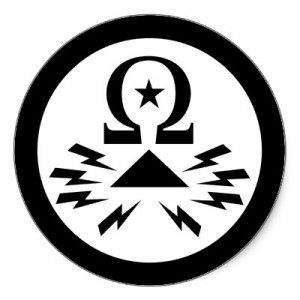Index Interview: The salami slicing of free speech
Conservative MP Dominic Raab talks to Mike Harris about civil liberties, free speech and how he “wouldn’t lose any sleep” if the UK’s communications data bill were canned
 (more…)
(more…)
Conservative MP Dominic Raab talks to Mike Harris about civil liberties, free speech and how he “wouldn’t lose any sleep” if the UK’s communications data bill were canned
 (more…)
(more…)

Kubatana is an NGO based in Harare that uses a variety of new and traditional media to encourage ordinary Zimbabweans to be informed, inspired and active about civic and human rights issues. As an organisation, it continuously seeks innovative fixes to the challenges of sharing independent information in Zimbabwe’s restrictive media environment. Freedom Fone is one of Kubatana’s solutions. An open-source software, Freedom Fone helps organisations create interactive voice response (IVR) menus to enable them to share pre-recorded audio information in any language via mobile phones and landlines with their members or the general public. The software is aimed at organisations or individuals wishing to set up interactive information services for users where the free flow of information may be denied for economic, political, technological or other reasons. Freedom Fone is one of the many ways Kubatana reaches across the digital divide to inform and inspire the vast majority of Zimbabweans who do not have regular or affordable internet access.
 ObscuraCam is a free smartphone application that uses facial recognition to blur individual faces automatically. Developed by WITNESS and the Guardian Project, it enables users to protect their personal security, privacy and anonymity. In 2011 and 2012, uprisings throughout the Middle East have shown the power and danger of mobile video footage. ObscuraCam helps protect activists who fear reprisals but want to safely capture evidence of state brutality. Launched in June 2011 and based in the USA, ObscuraCam is the only facial blurring or masking application that has responded to the concerns of human rights groups, citizen activists and journalists. In addition to obscuring faces, the application removes identifying data such as GPS location data and the phone make and model.
ObscuraCam is a free smartphone application that uses facial recognition to blur individual faces automatically. Developed by WITNESS and the Guardian Project, it enables users to protect their personal security, privacy and anonymity. In 2011 and 2012, uprisings throughout the Middle East have shown the power and danger of mobile video footage. ObscuraCam helps protect activists who fear reprisals but want to safely capture evidence of state brutality. Launched in June 2011 and based in the USA, ObscuraCam is the only facial blurring or masking application that has responded to the concerns of human rights groups, citizen activists and journalists. In addition to obscuring faces, the application removes identifying data such as GPS location data and the phone make and model.
Visualizing.org was created to help make data visualisation more accessible to the general public. It calls itself “a community of creative people making sense of complex issues through data and design… and a shared space and free resource to help you achieve this goal”.Data analysts and graphic designers have set themselves the challenge of sharing a constantly proliferating body of public data in an accessible form. Raw data on its own might as well be censored; visualisation opens the door to open information that otherwise would be left languishing on hard disks or, if downloaded, unintelligible to the average citizen. The project offers a place to showcase work, discover remarkable visualisations and visually explore some of today’s most pressing global issues. Created by GE and Seed Media Group, Visualizing.org promotes information literacy. The portal has had a remarkable year.
 Telecomix is the collective name for a decentralised group of internet activists operating in Europe. Their focus is to expose threats to freedom of speech online. During one operation, Telecomix activists published a huge package of data which proved that the Syrian government was carrying out mass surveillance of thousands of its citizens’ internet usage. Telecomix’s revelation that the technology used was supplied by US firm Blue Coat Systems has prompted serious investigations into the involvement of western technology firms in helping repressive regimes spy on their people. In mid-August 2011, Telecomix’s dispersed group of hackers came together to target Syria’s internet. Those attempting to access the internet though their normal browsers were confronted with a blank page bearing a warning: “This is a deliberate, temporary internet breakdown. Please read carefully and spread the following message. Your internet activity is monitored.” Following this, a page flashed up describing how to take precautions to encrypt usage.
Telecomix is the collective name for a decentralised group of internet activists operating in Europe. Their focus is to expose threats to freedom of speech online. During one operation, Telecomix activists published a huge package of data which proved that the Syrian government was carrying out mass surveillance of thousands of its citizens’ internet usage. Telecomix’s revelation that the technology used was supplied by US firm Blue Coat Systems has prompted serious investigations into the involvement of western technology firms in helping repressive regimes spy on their people. In mid-August 2011, Telecomix’s dispersed group of hackers came together to target Syria’s internet. Those attempting to access the internet though their normal browsers were confronted with a blank page bearing a warning: “This is a deliberate, temporary internet breakdown. Please read carefully and spread the following message. Your internet activity is monitored.” Following this, a page flashed up describing how to take precautions to encrypt usage.
In the age of online information, it can feel harder than ever to stay informed. As we get bombarded with news from all angles, important stories can easily pass us by. To help you cut through the noise, every Friday Index publishes a weekly news roundup of some of the key stories covering censorship and free expression. This week, we look at how a human rights group has been forced out of their country, and how the White House faces backlash for banning a popular news outlet.
Human rights on the run: Activists critical of Nayib Bukele forced to flee El Salvador
After 25 years of activism, Cristosal, the most prominent human rights group in El Salvador, has made the decision to relocate its staff and operations out of the country following increasing threats and targeting by the Salvadoran government.
Cristosal had been at odds with President Nayib Bukele’s government for years. The group was at the forefront of critics within the country over the wrongful deportations of Venezuelans to El Salvador from the US and has compiled alleged evidence of torture and corruption within Bukele’s government. But tensions have escalated as El Salvador has forged a strong alliance with the USA under Donald Trump. Executive director of Cristosal Noah Bullock stated that repression against journalists and activists has escalated in the last two months, and that the arrest of Ruth López, Cristosal’s chief legal officer in anti-corruption was the tipping point that pushed them to flee.
López, held in the Izalco prison in the west of El Salvador, is now the only Cristosal employee remaining in the country where it was founded; the group ensured that all staff were safely out of the country before making the announcement out of fear of Bukele’s response. It follows an increasing trend of journalists and activists fleeing the Central American country – at least 40 journalists have relocated since May, alongside over 60 lawyers and activists, due to police harassment, surveillance, and threats of arrest. Cristosal will continue to cover human rights abuses in El Salvador from exile in neighbouring countries Guatemala and Honduras.
Getting the boot: White House bars Wall Street Journal from Trump’s Scotland trip
The White House has come under fire for barring The Wall Street Journal (WSJ) from joining the media entourage covering Donald Trump’s trip to Scotland following a controversial report regarding Trump and child sex offender Jeffrey Epstein.
The article contained a description of a letter Trump allegedly wrote to Epstein for the disgraced financier’s 50th birthday, including a drawing of a naked woman and allegedly including the quote “Happy Birthday — and may every day be another wonderful secret.” Trump denied ever writing the letter, and reportedly threatened to sue WSJ if they released the article. US press secretary Karoline Leavitt stated WSJ were kicked from the press pool due to “fake and defamatory conduct”.
A spokesperson for rival newspaper New York Times has condemned the decision, dubbing it “an attack on core constitutional principles underpinning free speech and a free press“, while the White House Correspondents Association’s president Weijia Jiang stated that it should “concern all who value free speech and an independent media”. It is merely the latest incident of the Trump administration cracking down on media organisations; in February the White House revoked the Associated Press’s access to presidential events after it refused to refer to the Gulf of Mexico as “Gulf of America” as Trump had decreed.
A tipping point: BBC joins media orgs in statement on Gaza starvation
The BBC have released a joint statement with Agence France-Presse (AFP), Associated Press (AP) and Reuters expressing concern over the rapidly increasing threat of starvation to their journalists reporting from Gaza.
International journalists are currently barred by Israel from entering the Gaza Strip, meaning that the only reporters on the ground are local Palestinian journalists, who are as affected by the ongoing conflict as civilians. The statement reads, “For many months, these independent journalists have been the world’s eyes and ears on the ground in Gaza. They are now facing the same dire circumstances as those they are covering.”
It follows an AFP statement calling for Israel to allow its freelance journalists to leave Gaza, reporting that they had been forced to cut back on their coverage of the conflict due to starvation; one journalist said, “we have no energy left due to hunger”. This aligns with widespread reports that the famine in Gaza is reaching unprecedented levels due to Israeli forces blocking aid into the country. The chief of the World Health Organization stated that Gaza is suffering “man-made mass starvation”, and over 100 humanitarian groups released a joint statement detailing the “intense famine” faced across Gaza. Israeli government spokesman David Mencer refuted this, telling Sky News that “There is no famine in Gaza”, and that all food shortages had been “engineered by Hamas”.
A step in the right direction: Malawi decriminalises defamation
In a landmark judgement regarded as a huge step towards press freedom for the south-east African nation, Malawi has ruled that criminal defamation is unconstitutional, stating that it was a “disproportionate and unjustifiable limitation on constitutional freedom”.
The judgement came as part of a case concerning Malawian social media influencer Joshua Chisa Mbele, who challenged Section 200 of the Penal Code – the section criminalising defamation – after charges were brought against him for comments he had made regarding a public official. The Malawi chapter of Media Institute of Southern Africa (MISA) described the case as “a landmark victory for freedom of expression”.
The law had allowed those found guilty of defamation to face criminal sanctions, such as steep fines and imprisonment. The court ruled arbitrary interpretations of the law and the fear of reprisal harming public discourse meant that the law violated constitutional rights regarding free speech. However, true press freedom in Malawi remains distant: publishing “false news” can be met with up to two years in jail, while the “unauthorised transmitting of data” can be met with up to five years’ imprisonment.
A swift U-turn: Terror charges against Kenyan activist dropped after backlash
Notable Kenyan activist Boniface Mwangi was arrested on 19 July 2025, accused of “facilitation of terrorist acts” during the widespread protests that have shaken Kenya over the last two months. His arrest sparked outrage across the country and worldwide, with rights groups denouncing the charges raised against him and #FreeBonifaceMwangi going viral on social media. Now, the terror charges have been dropped, in place of the lesser charge of the illegal possession of ammunition without a licence.
Investigators reportedly searched his home and office, seizing personal devices such as a laptop, notebooks and two unused teargas canisters. The search warrant used by the police also allegedly accused Mwangi of paying “goons” to incite the protests, a claim that Mwangi denies. He stated outside court 21 July that he has never worked with “goons” and that “people hate [Kenyan President William] Ruto for free.”
Mwangi is often involved in protests, and has been detained a number of times. In May, he and Ugandan activist Agather Atuhaire were detained and allegedly tortured following a protest in Tanzania before being dumped at the borders of their respective countries. Recent protests in Kenya have been met with intense repression, with Ruto ordering officials to shoot demonstrators in the leg to ensure they are incapacitated but not killed – nevertheless, 65 people are reported to have died in protests since unrest began on 12 June.
In the age of online information, it can feel harder than ever to stay informed. As we get bombarded with news from all angles, important stories can easily pass us by. To help you cut through the noise, every Friday Index publishes a weekly news roundup of some of the key stories covering censorship and free expression. This week, we look at how one European government is targeting journalists with spyware, and the crackdown on protest in Los Angeles which has pitted the US president against the governor of California.
State-sponsored espionage: Italian government revealed to be using spyware on activists
On 5 June 2025 an Italian parliamentary committee admitted that the country’s government had been using a product of Israeli spyware company Paragon Solutions to view encrypted messages between Italian activists involved in migrant rights. The spyware service, called Graphite, allowed the operators to view private WhatsApp conversations between activists. That the Italians had been using Graphite spyware had been made public knowledge in February 2025, and Paragon reportedly cut ties with the Italian government as a result, claiming that they had breached the terms of the contract by targeting members of civil society.
Though the parliamentary committee admitted that the government had been using the software, they denied that Italian journalist Francesco Cancellato, editor of news website fanpage.it had been targeted. An investigation by Citizen Lab has since revealed that both Cancellato and the head of Fanpage Ciro Pellegrino had indeed been hacked by Graphite spyware, although those responsible have not been identified. Fanpage, based in Naples, has been repeatedly critical of Italian Prime Minister Giorgia Meloni, but the government denies any involvement in the hacking of these two journalists. The parliamentary committee stated that all surveillance was done in accordance with national law – but the case has sparked outrage over the use of spyware across Europe, and an EU parliamentary debate on the matter has been scheduled for 16 June.
The battle of Los Angeles: National guard summoned to crack down on mass protests against ICE
Over the last week, the state of California has been gripped by unrest. Protests that started in response to workplace raids by Immigration and Customs Enforcement (ICE) have grown into a daily occurrence, with riot police called in to enforce a night-time curfew imposed by city mayor Karen Bass – who has demanded that ICE leave the city. President Donald Trump has responded to these protests against ICE with a fierce crackdown, claiming that he must “liberate” Los Angeles from protesters and calling both the National Guard and the Marines to the city. This in turn sparked a feud with California Governor Gavin Newsom, who accused Trump of a “brazen abuse of power” and claimed that “democracy is under assault before our eyes.”
The protests have been largely peaceful, but were met with a stern crackdown that turned violent. Videos have circulated of protesters being trampled by officers on horseback and beaten with wooden batons; numerous journalists have reported being shot with rubber bullets, and tear gas has been used against non-violent demonstrators. The repercussions of the protests have stretched beyond the streets of Los Angeles. California senator Alex Padilla was pinned to the floor and handcuffed during a press conference by Homeland Security secretary Kristi Noem when he stood to ask a question, an incident which Governor Newsom described as “outrageous, dictatorial, and shameful”. Despite a federal judge ruling that Trump’s deployment of the National Guard was illegal, an appeals court declared that Trump will maintain temporary control of the guard – signalling that this long week of unrest is far from over.
A lapse in defence: Colombian presidential candidate shot in the head had security reduced on day of attack
On 7 June 2025, Colombian presidential candidate Miguel Uribe was shot twice in the head at a campaign rally in Bogotá. Uribe survived the attack and has undergone major surgery, but his condition is still extremely serious – and it has been revealed that his security detail on the day of his attack was reduced.
Colombian president Gustavo Petro announced on 9 June that Uribe’s protection team was found to have been reduced from seven to three people ahead of his rally in Bogotá, and called for an investigation into the incident. Uribe’s lawyer Victor Mosquera stated that he has filed a criminal complaint against his security detail, alleging that he had made over 20 requests for increased security in 2025. Two individuals have been arrested, including the alleged shooter – a 15-year-old boy who reportedly stated he acted “for money, for my family”.
The attack brings back unwanted memories of a nation fraught with violence. Uribe’s mother, Diane Turbay, was kidnapped and murdered by the cartel of Pablo Escobar in 1991. Human Rights Watch report that homicides and kidnappings in the country have gone up 20.9% and 34.8% respectively since 2016.Frontline Defenders have identified Colombia as the most lethal country in the world for human rights defenders.
A tragic loss: Dhaka University student takes his own life following harrassment over social media post
24-year-old Shakil Ahmed, a fine arts student at Dhaka university in Bangladesh, took his own life in the early hours of Tuesday, 10 June, after he had received threats over a post on Facebook.
Reports from Singair police station state that an old post by Ahmed, in which he allegedly wrote derogatory comments about Prophet Muhammad, resurfaced and went viral on Facebook. Ahmed’s cousin, Mukta Akter, stated that during the night of 9 June, several hundred people from the surrounding areas converged upon Ahmed’s family home, threatening him and his family over the post despite him already deleting it. Ahmed then made a series of Facebook posts claiming that he did not insult Prophet Muhammad, but that he had “lost the respect of his people” and wrote in one last post that “I cannot live in this world knowing I have destroyed my parents’ dignity”.
Detention and oppression: Indigenous activists in Mexico violently repressed
The Hñöhñö (Otomi) people are an Indigenous group live in Mexico’s central plateau, largely in the state of Queretaro. On 4 June 2025, two young Hñöhñö people were reportedly arbitrarily detained by police while on their way to work in the settlement of Santiago Mexquititlán. A community group organised a peaceful protest against their detention, but they were reportedly met with violence from the Querétaro State Police (POES).
POES agents reportedly violently detained five of the protesters and held them incommunicado for several hours, while the remaining demonstrators were surrounded by police forces. Hñöhñö human rights defender Estela Hernández Jiménez was one of those detained while attempting to document the arrests of the two Hñöhñö youths. She was reportedly beaten and abused by several police officers, before they took her into custody. Jiménez, who was released later that evening, claims she was physically and sexually assaulted by officers. Local human rights groups have condemned the incident claiming that it is part of a wider systematic effort of violence against Indigenous communities in Mexico by the state, dubbing it a “war of extermination”.